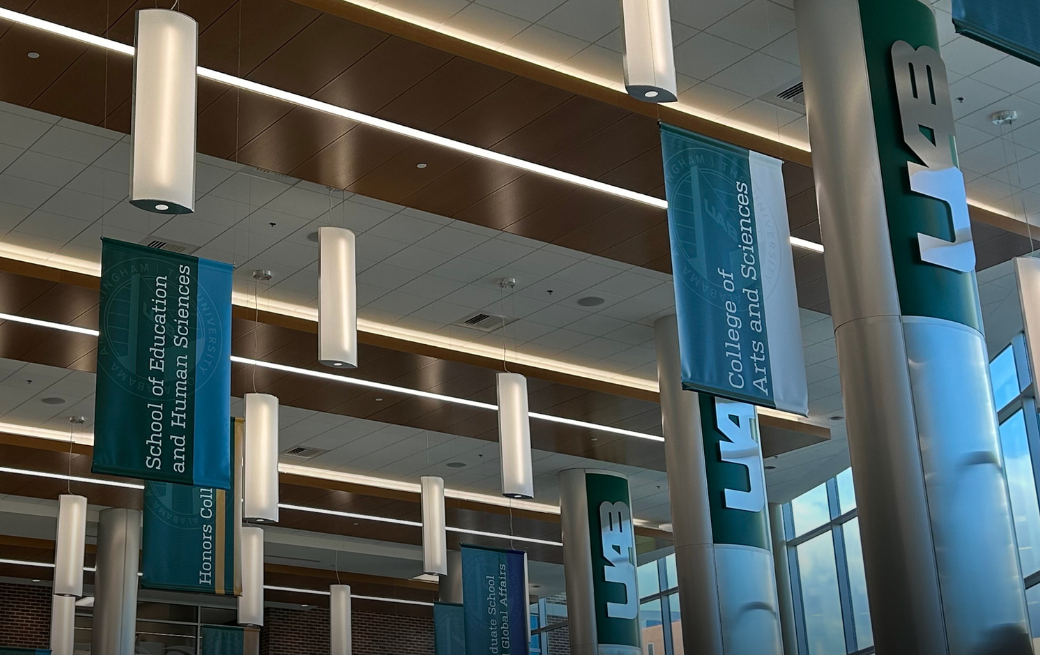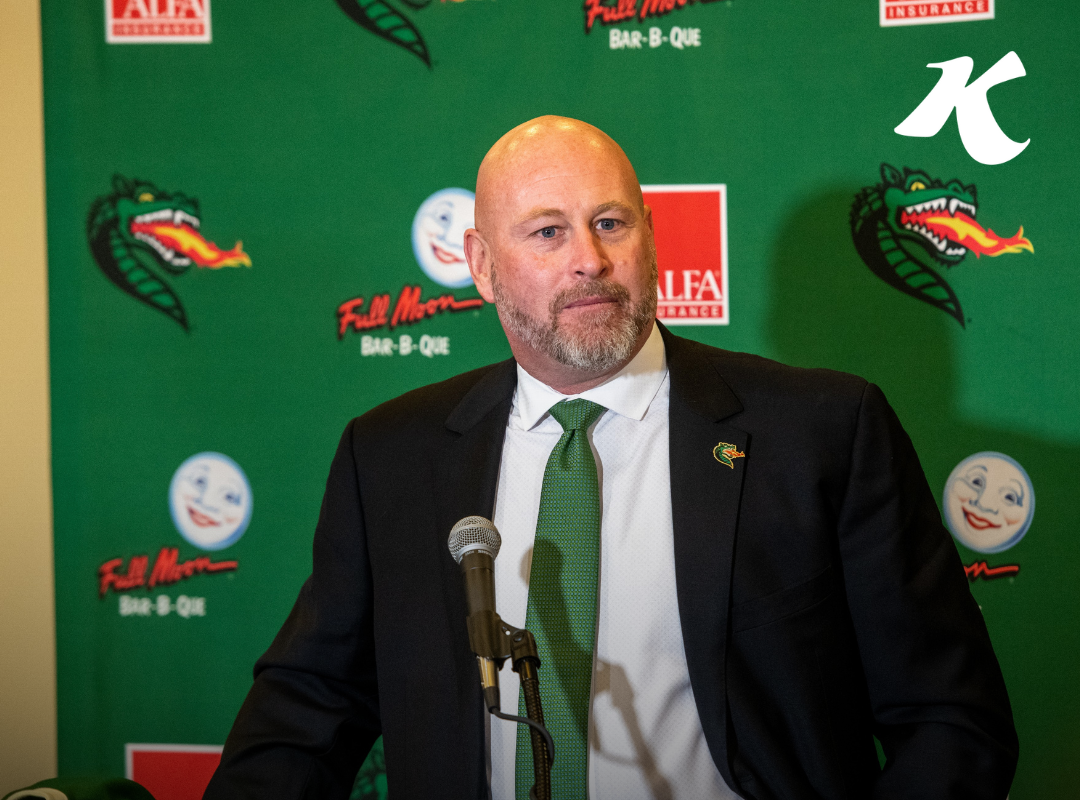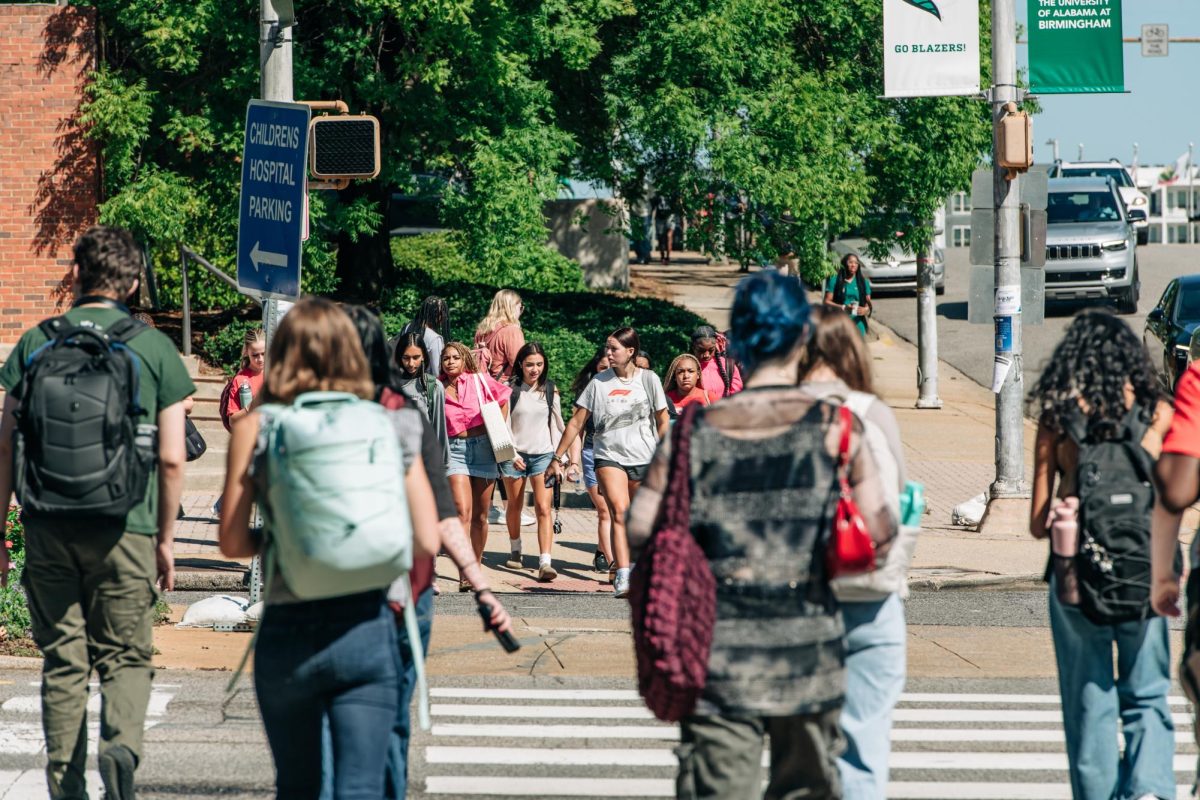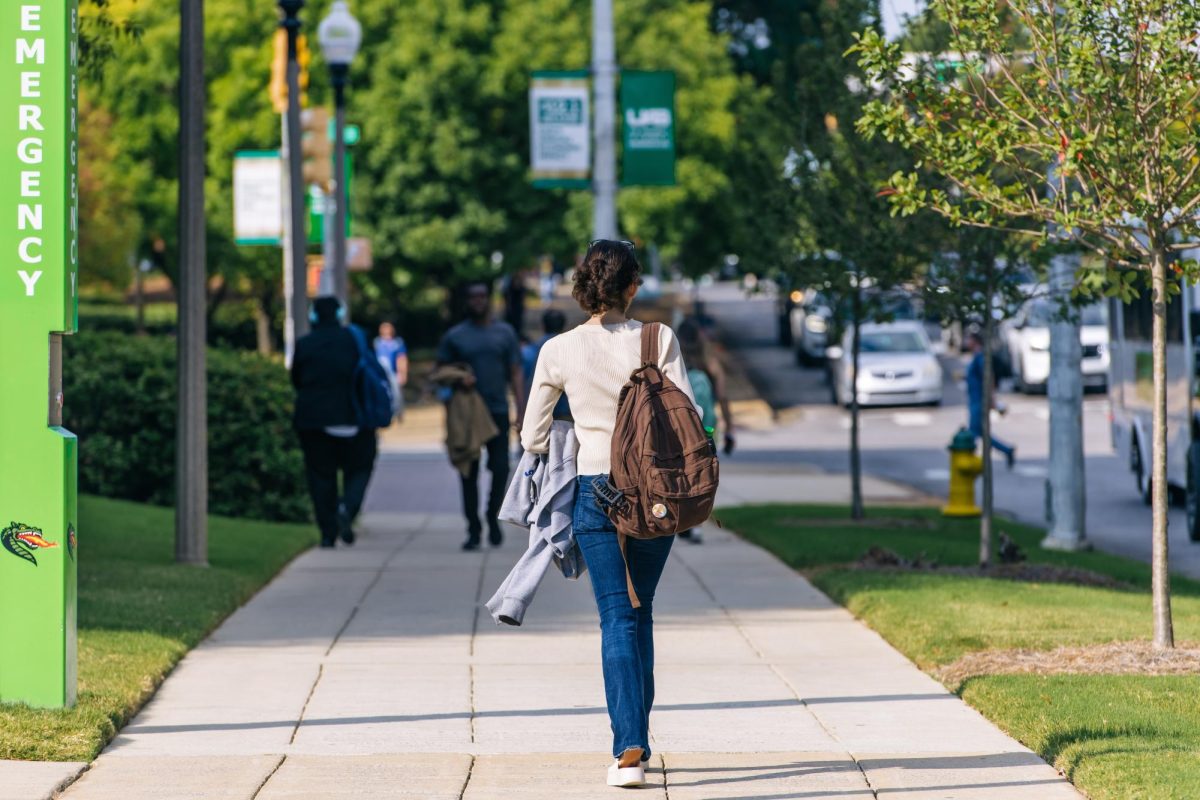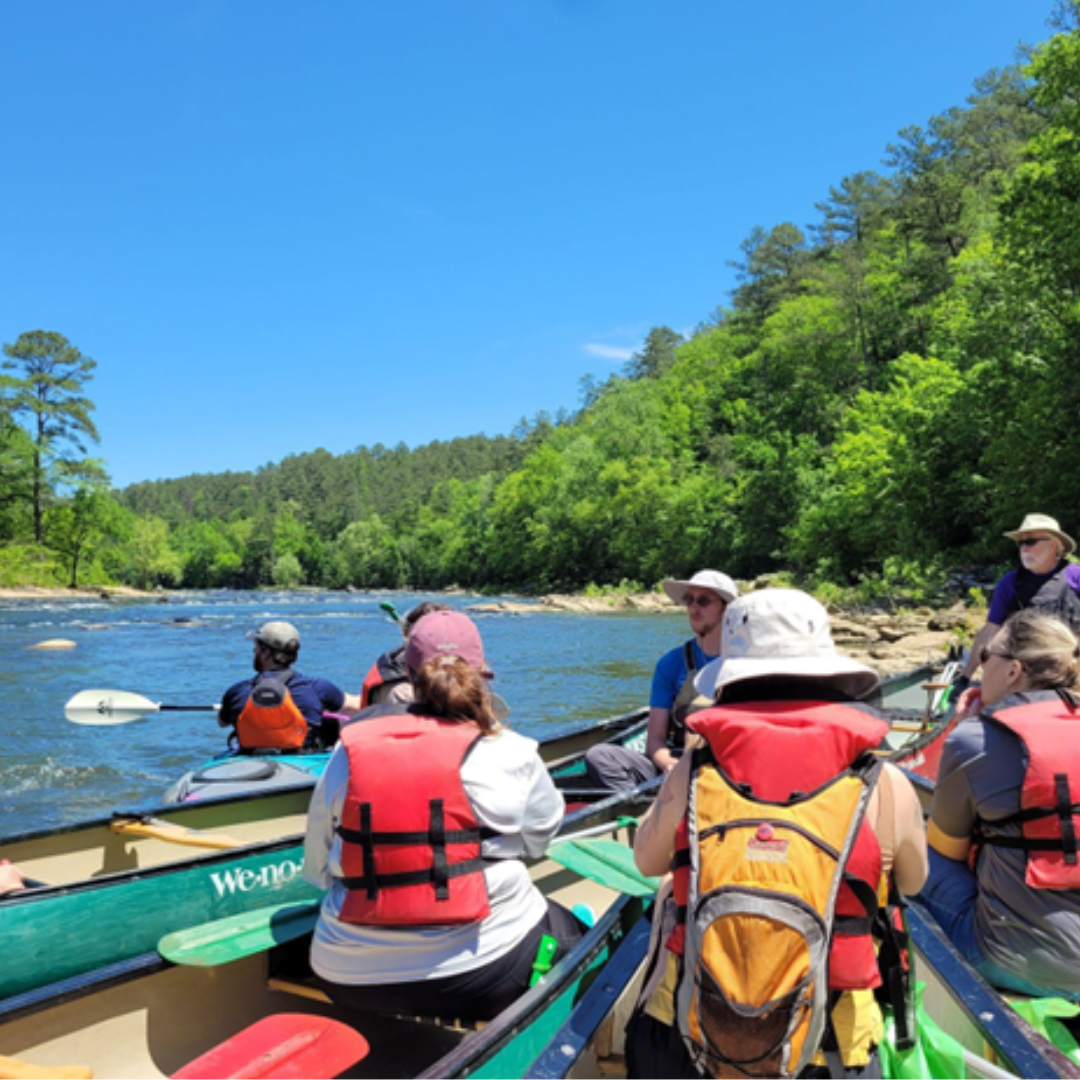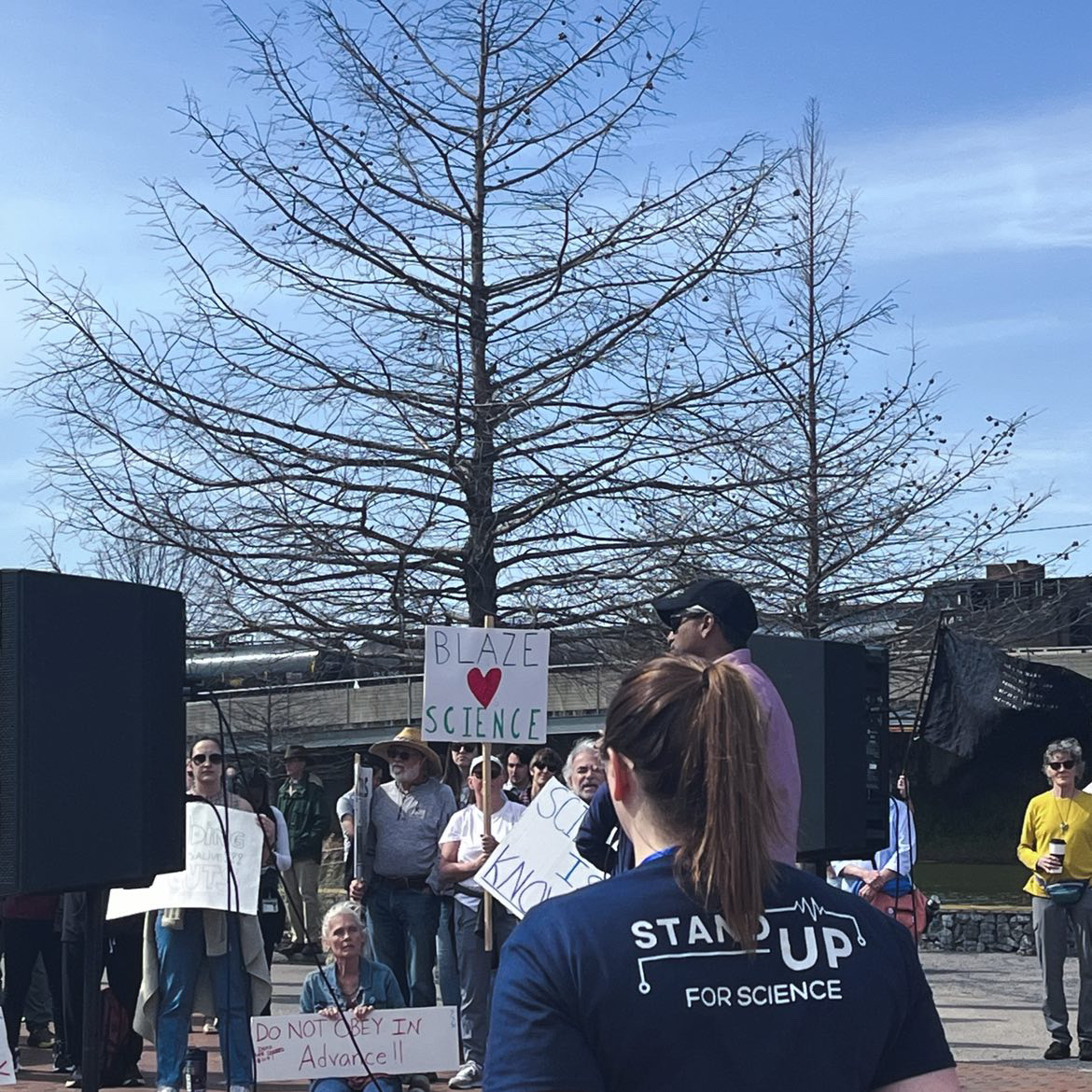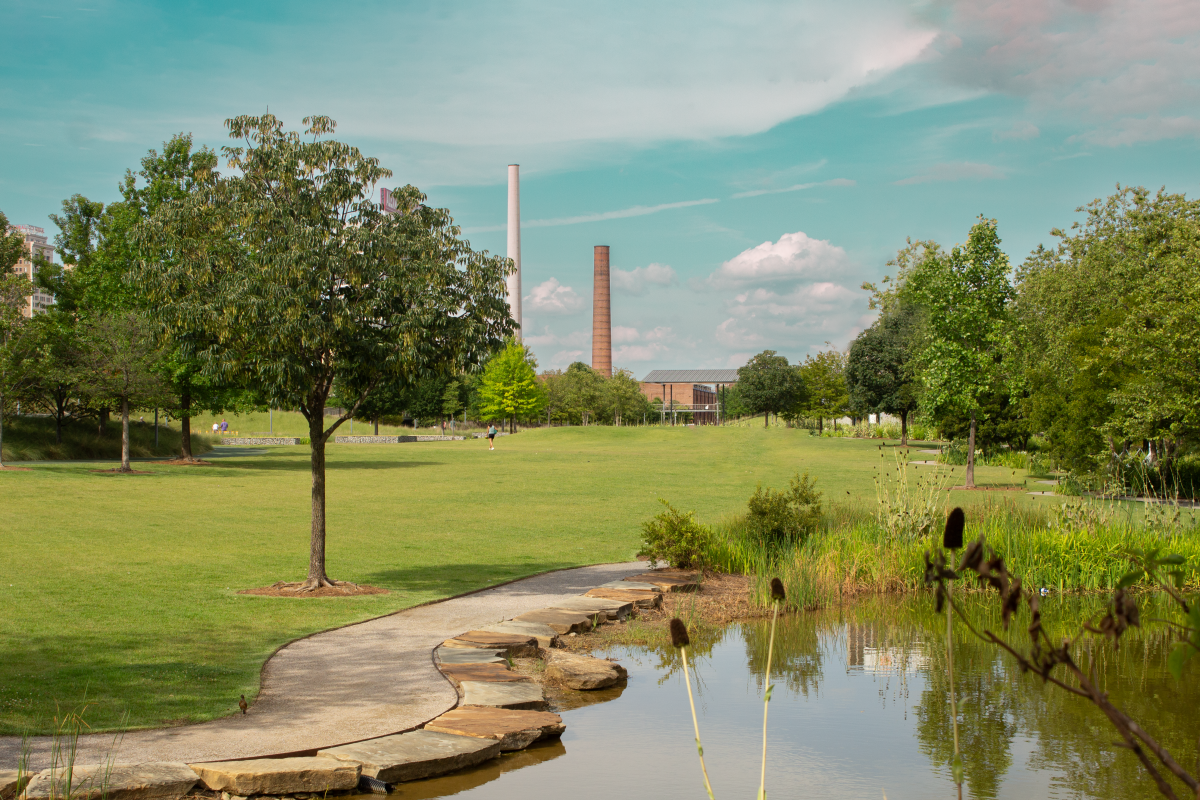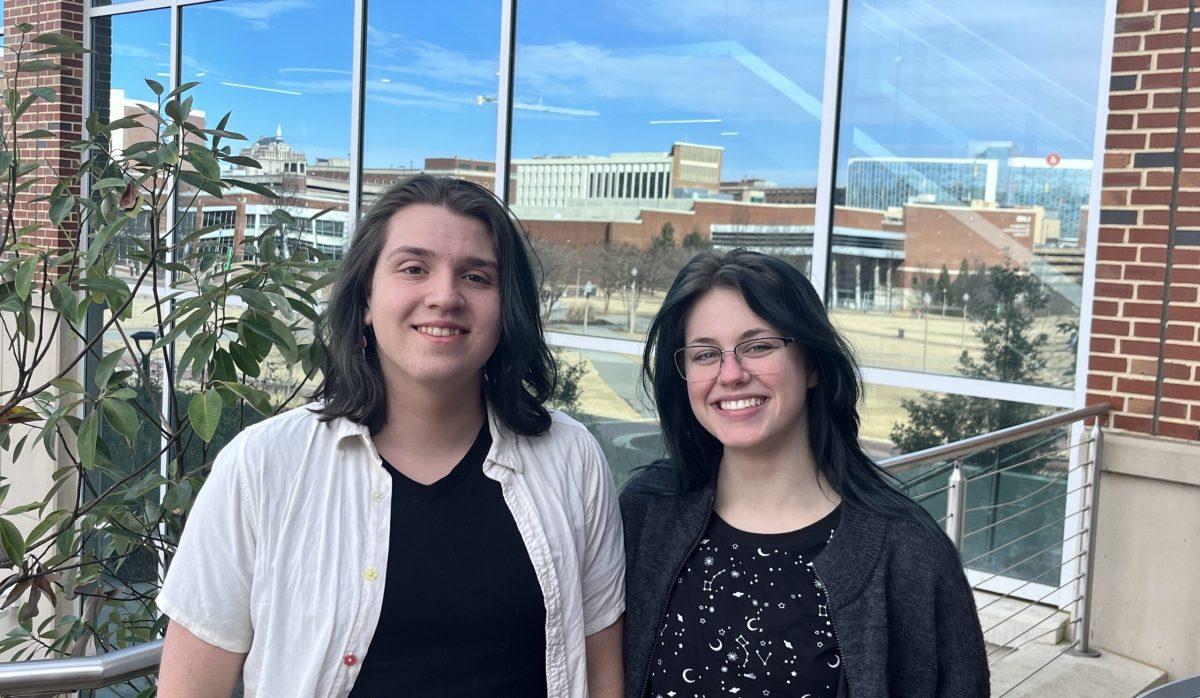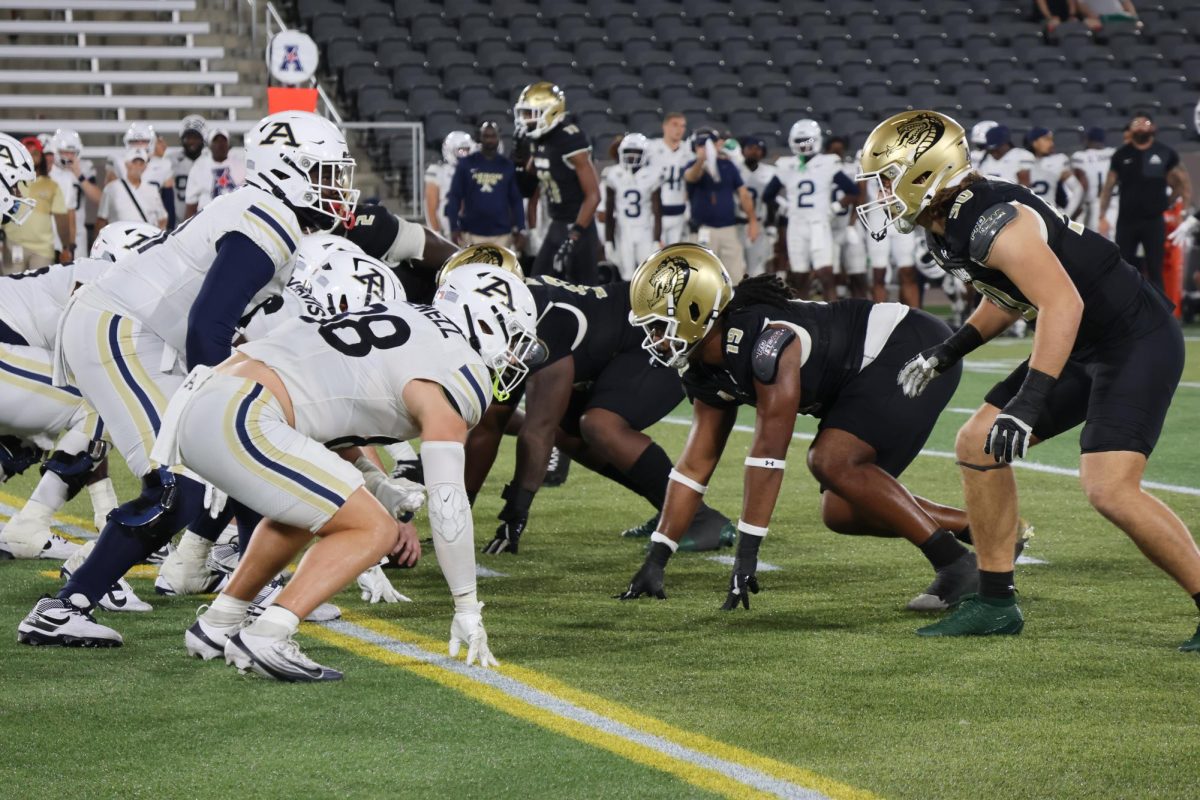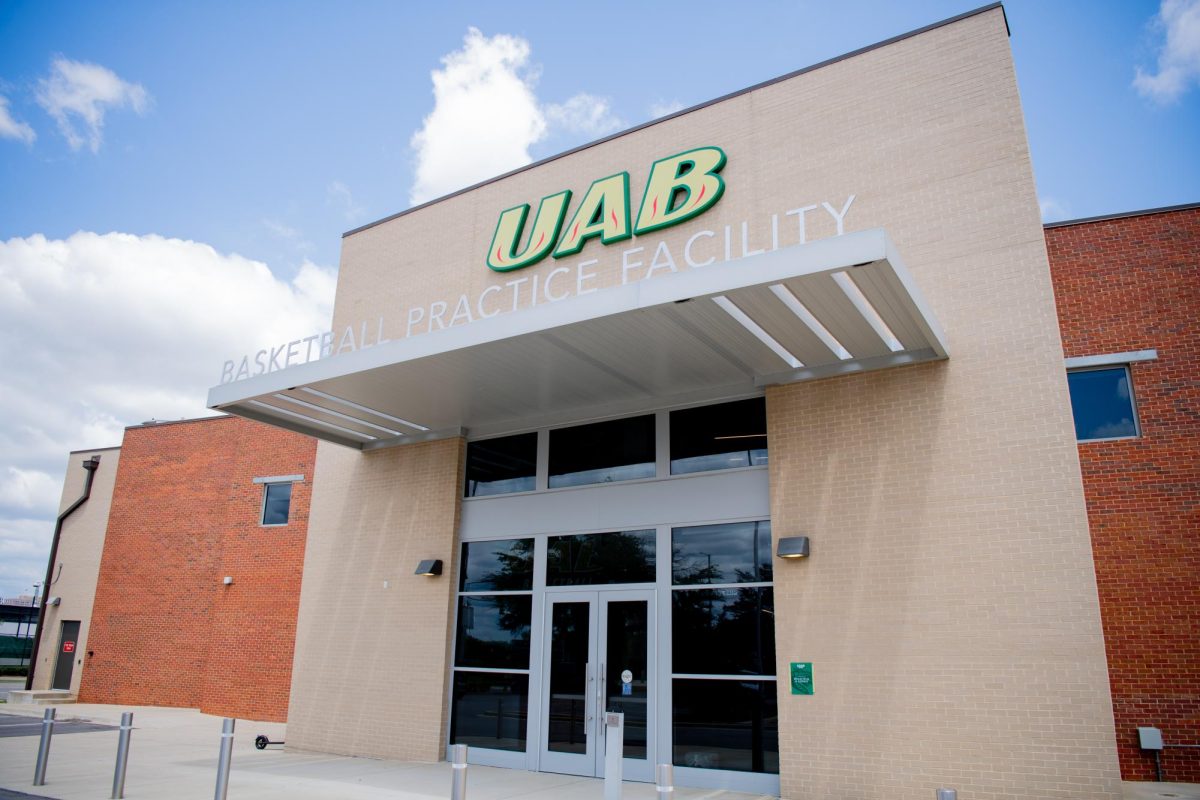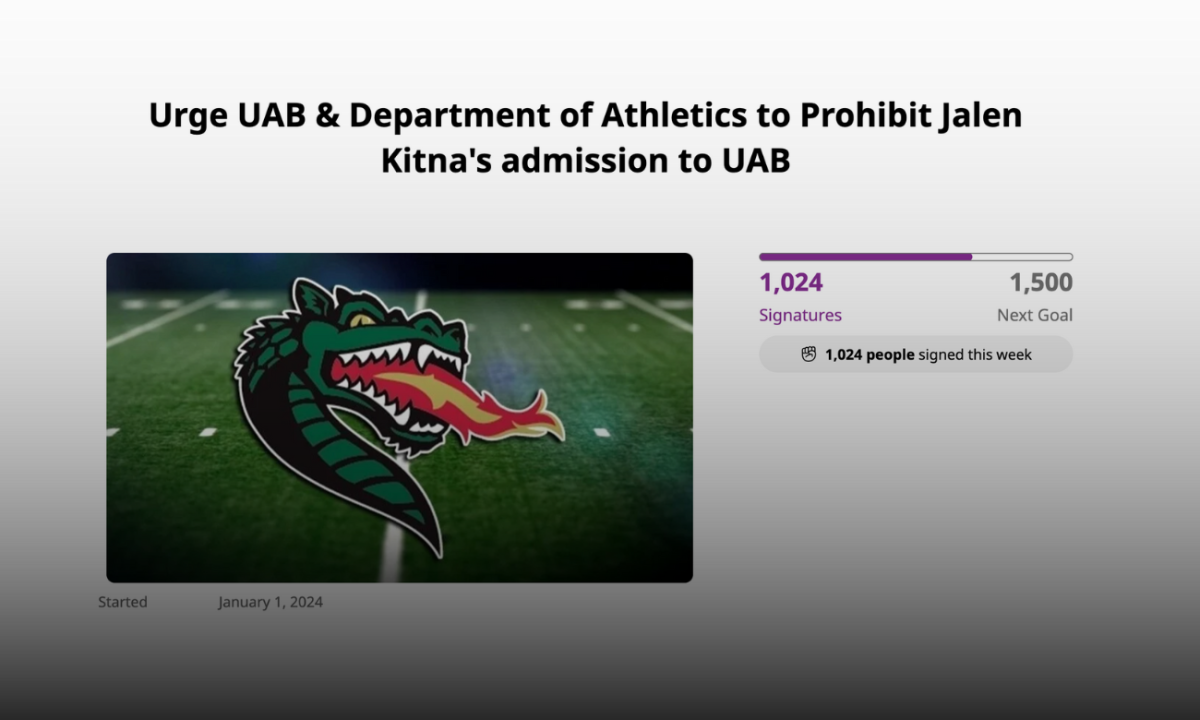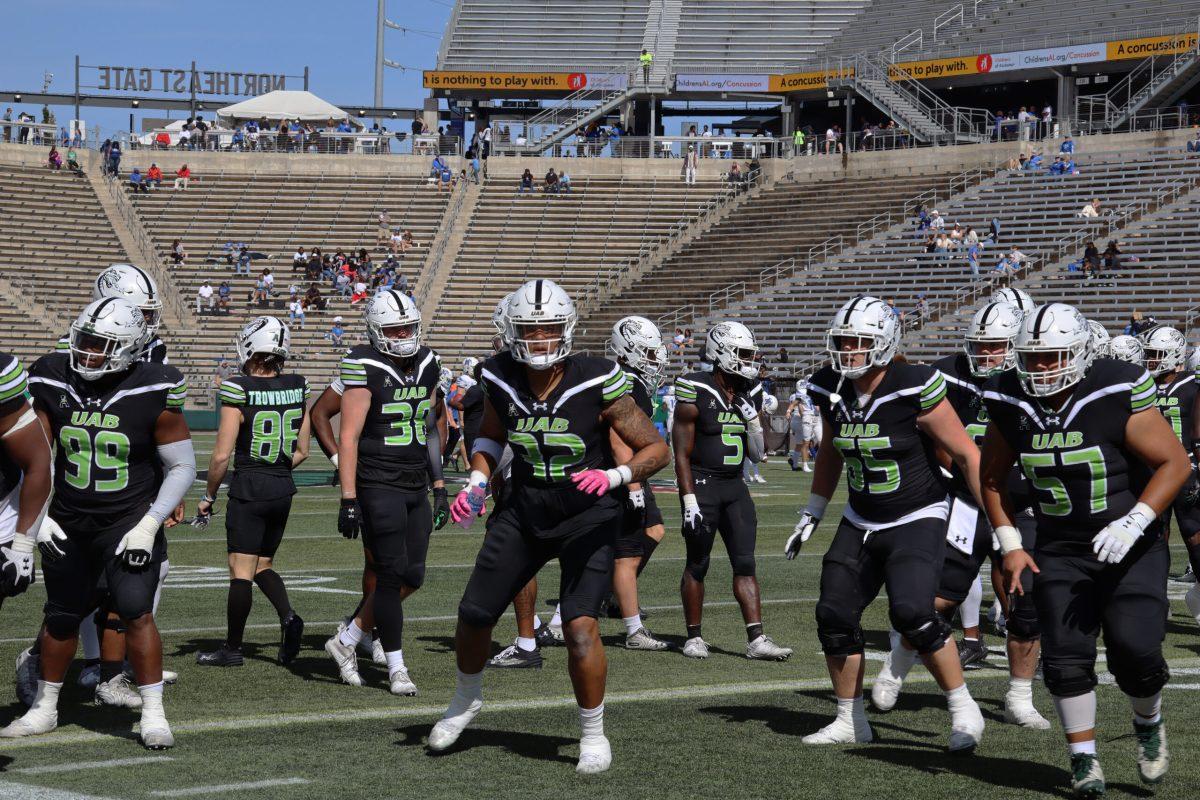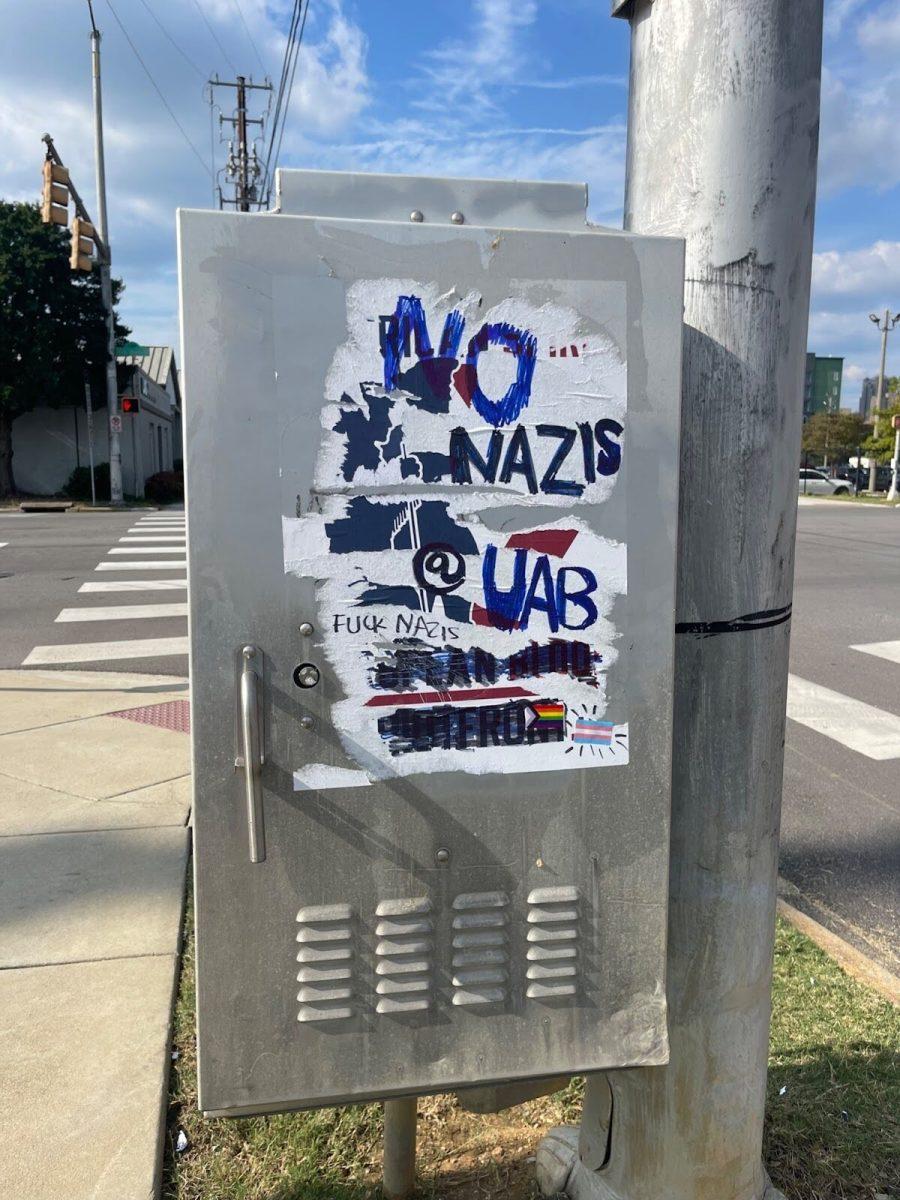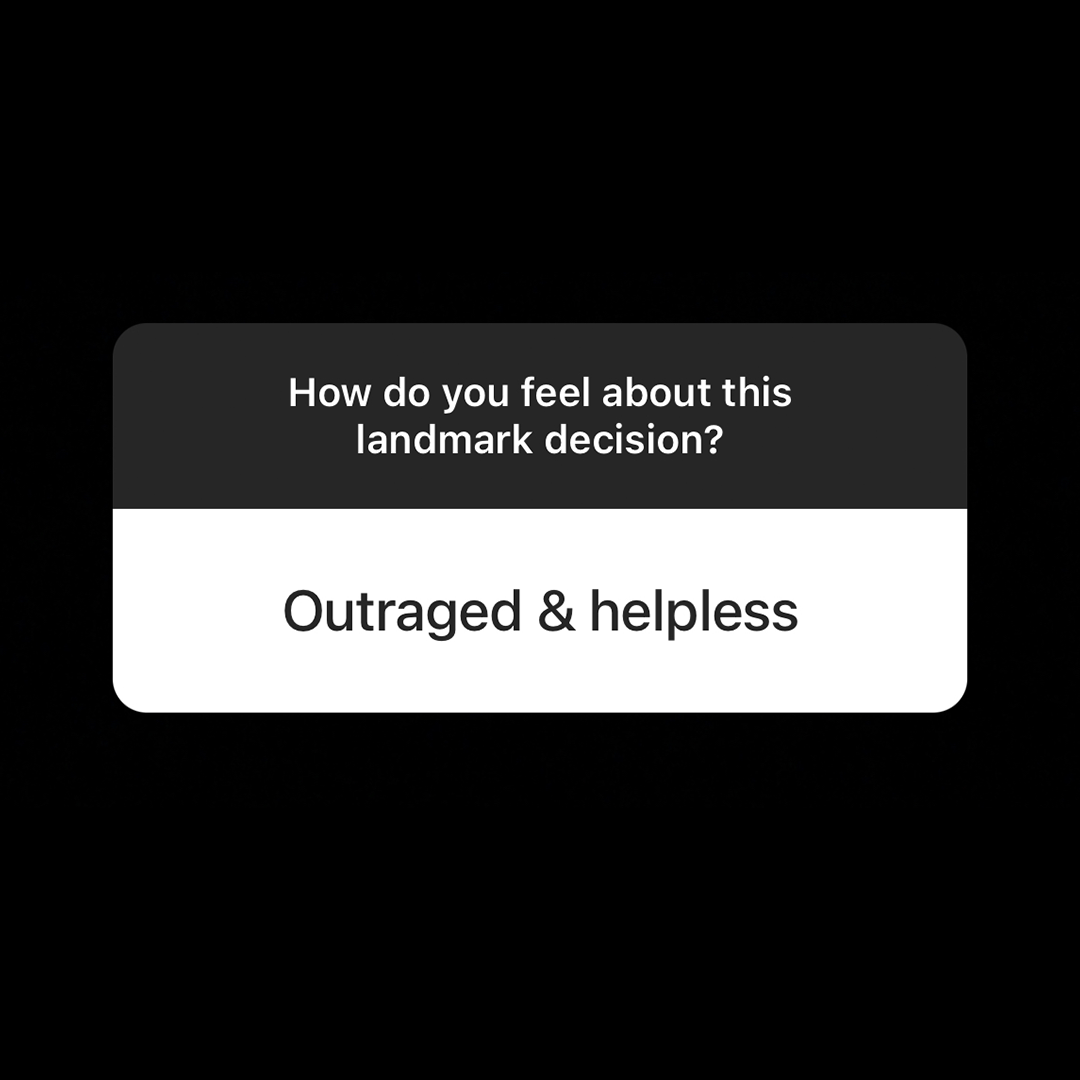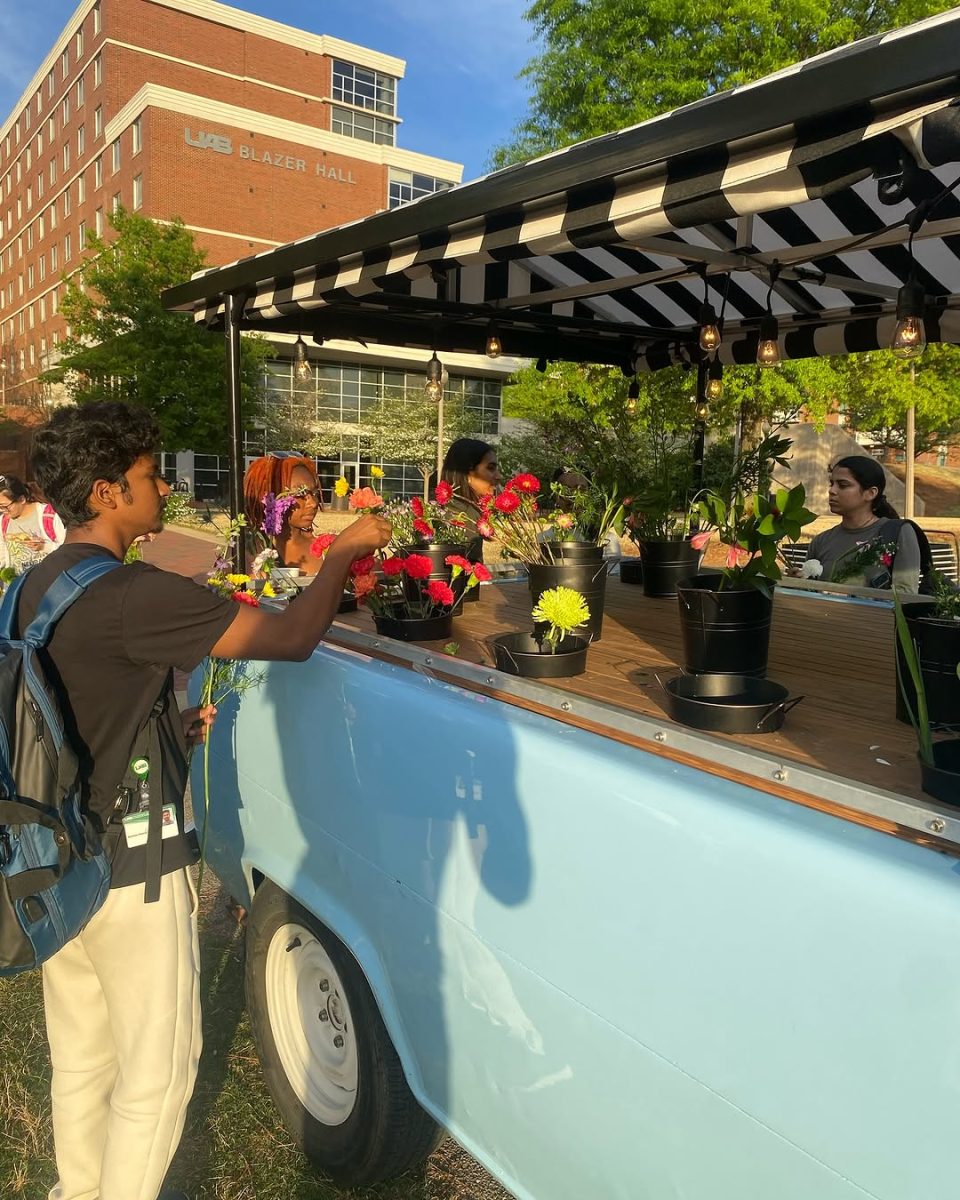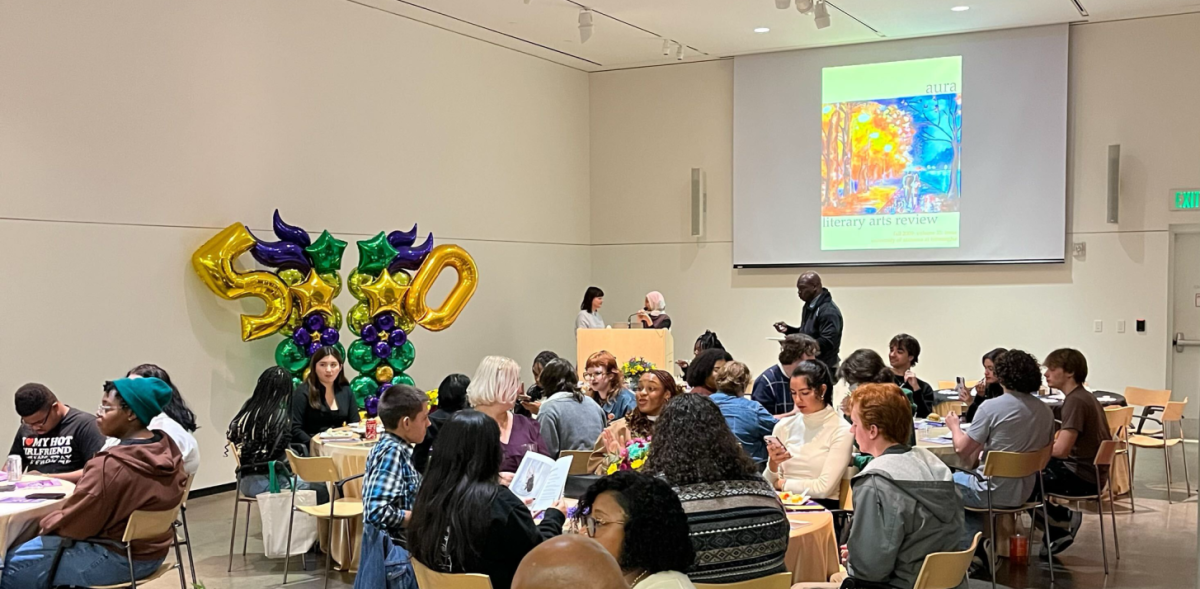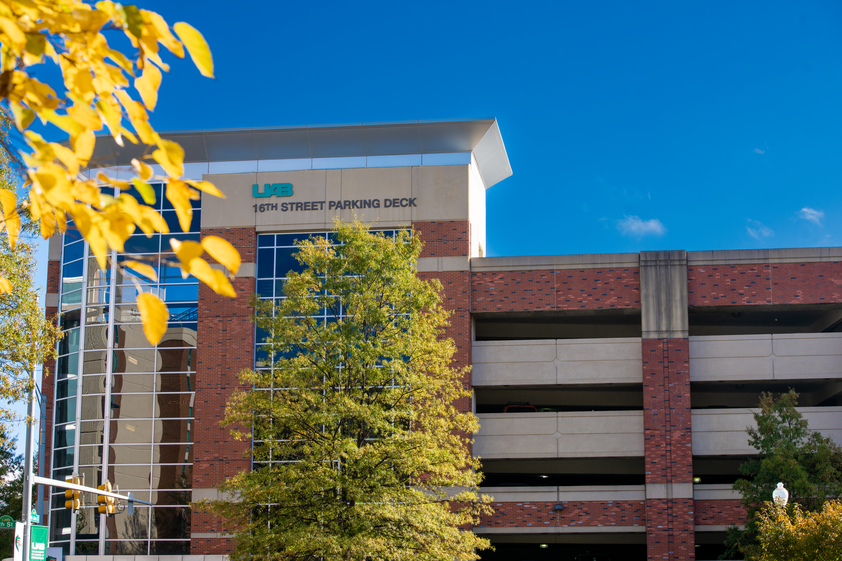
Sexual assault on campus is a hot button issue around the country. (Photo by Brandon Varner, design by Thomas Baldwin)
Brandon Varner – Editor-in-Chief
[email protected]
In September of 2014, Emma Sulkowicz started carrying a 50-pound mattress with her at all times on Columbia University’s campus.
The mattress, a 50-pound twin-sized extra long bed purchased online, was a near-perfect replica of the bed on which she was raped in the Columbia University dorms. Sulkowicz chose to carry the mattress as her senior thesis for her art degree, to call attention to an assault that she felt that her university was attempting to make invisible.
In early March 2016, four students from four universities, including UAB, filed Title IX complaints against their schools for mishandling their sexual assault investigations. End Rape on Campus, a sexual assault survivor’s advocacy group, assisted the survivors in filing the complaints. The documents alleged that in most of the cases, the universities were negligent, if not outright making a concerted attempt at obstruction of justice by violating their Title IX rights.
Title IX, as defined by the U.S. Department of Education, states that: “No person in the United States shall, on the basis of sex, be excluded from participation in, be denied the benefits of, or be subjected to discrimination under any education program or activity receiving Federal financial assistance.” One of the many rights that this statute is designed to protect is a sexual assault survivor’s right to a stress-free educational environment.
The sort of stress that can come from being subjected to sharing a classroom with a perpetrator of sexual assault.
Students that have been following the case find this behavior to be troubling, especially coming from their own university. Mugdha Mokashi, a sophomore Neuroscience major and the president of UAB’s chapter of Unite for Reproductive and Gender Equity, is one of those students.
“Title IX, they usually have the perpetrator make efforts to not have contact with a student that made the claim. Usually that means that the burden is on the perpetrator to stay away from the student and find a way to not interact with the person,” Mokashi said, citing details released from the complaint. “Instead, the survivor put forth the claim that the school told her be the one of carrying the burden of using the back entrance of buildings, and using the med school library instead of the undergraduate library, which is unbelievable.”
URGE is a reproductive justice advocacy organization with multiple chapters throughout the country. According to Mokashi, the organization is focused on lobbying for issues such as abortion access and rights, resources for young parents and comprehensive medically accurate sex education in schools.
As a result of their work, the organization often finds themselves advocating for sexual assault survivors. In this capacity, Mokashi believes the case fits a pattern on a national scale, but feels disappointed by the allegations levied at UAB itself.
“It’s infuriating but it’s not surprising at all. We really want universities to be this really idyllic place where you can be what you want to be and do whatever you want to do, but in essence universities are microcosms of these patriarchal, rape-culture enforcing societies,” Mokashi said. “The issue is, with a university, you see the same people all the time, you talk to the same people all the time and that sort of microcosm doubles on itself and you have a concentration of all the things that could happen in one place. The problem is really magnified because now you can see your abuser everywhere, and you can see the people involved in the case everywhere.”
The survivor in the claim against UAB was allegedly put into a position where she was in charge of keeping herself hidden from the man who assaulted her. The claim also states that the university added to that order by suppressing evidence in her case.
According to the complaint, the student at UAB’s forensic sexual assault examination, or rape kit, was either not considered to be sufficient evidence to come to a conclusion on whether a student had violated the student code of conduct, or was just not used in the investigation.
At UAB, the school allegedly told the complainant that since no one was trained at the university to interpret forensic data correctly, the school would not consider reviewing the rape kit. Her perpetrator was found not responsible and she is in the process of appealing her case, according to an interview with AL.com.
According to Sofie Karasek, the Director of Education and one of the Co-Founders of End Rape on Campus, it can be in a university’s best interest to make these cases difficult to pursue.
“Title IX in court has a really high standard for liability. The school has to have actual knowledge of the incident,” Karasek said. “They have to have something reported to them, and they have to have been deliberately indifferent to it.”
In an effort to make sure that they fit this standard of plausible deniability on sexual assaults, universities can often go to extreme lengths.
“One of the big reasons schools don’t publicize resources and try to make it difficult to report is because of that standard of Actual Knowledge,” Karasek said. “They actually don’t want to know that a sexual assault has happened because that could bring them one step closer to being held liable if they mishandle the case, which happens so often. They would much rather have the vast majority of survivors never report to them than to have people come forward about their experiences.”
Schools make this effort in order to show themselves as safe places for prospective students. If schools can present the image that crime never happens on campus, then they can make the campuses seem like havens for students looking to have a relatively smooth college experience.
“Schools don’t want to have the appearance of not being a safe campus, and if a student reports a sexual assault on campus to them, then they are required under federal law to publish that information in the annual Cleary crime statistics report that every university has to put out,” Karasek said. “So if somebody’s looking at those statistics and they see that there’s a lot of sexual assault cases, then that could potentially mean that fewer people would want to go to that school. So even though it’s happening everywhere and it’s very common at institutions across the country, schools don’t want to be known as the rape school.”
The Clery Act, signed in 1990, is a bill that requires every college and university that participates in federal financial aid to publish information about crime on and near their campuses every year. If schools do not take a report on a crime, it does not have to be mentioned in their annual report, possibly giving the appearance of a lower level of crime than the true level on campus.
According to the National Sexual Violence Resource Center, 90 percent of sexual assault survivors on campuses do not report their assaults.
“One of the biggest issues is that students largely don’t anticipate that their cases are going to be taken seriously by the administration and it will actually be worse for them if they report than if they decided not to,” Karasek said. “That’s something that’s very widespread as campus as a reason why people don’t report. One of the other very common reasons people don’t report is because they like they have to have basically evidence on the level of videotape of the assault or they’re not going to be believed.”
Universities around the country have departments that not only try to fight this perception of victim-blaming on campus, but also try to make sure students are informed of their rights. At UAB, one of these departments is the Office of Student Advocacy, Rights and Conduct.
Emily Feinstein, M.Ed., is the deputy Title IX coordinator that works in this office.
“We do welcome students sharing with us concerns, as we always want to ensure students’ rights are met and students know we are here to listen and will prioritize their concerns,” Feinstein said. “Title IX can often feel like an ever changing landscape, with almost daily guidance and opportunity for improvement with case law and other forms of federal guidance interpreted and issued. Within our efforts in Student Advocacy, Rights and Conduct, we are constantly seeking ways in which we can review policy and procedure and ensure that students understand and trust in the process.”
The process may seem intimidating or confusing to students, especially in the face of the recent complaint which suggests that the process may not work for at least some students. SARC is looking to change that perception with not only its “Sexual Assault Doesn’t Fly” ad campaign, but also a general mission to make students aware of their rights to equal treatment under the statute.
The campaign, which was designed by students, is a passive educational campaign designed under an effort to “develop key messages that [SARC] feels effectively speaks to their target audience of students,” according to Feinstein.
“Our prevention efforts aim to be multi-targeted, directed at the individual, the community and the society. We aim to provide primary prevention, meaning to prevent the injury or harm before it occurs. Reducing both incidence and prevalence of the problem,” Feinstein said. “Examples of that are via bystander intervention, which is done through programs like the required Every Choice Green Dot that is completed by all incoming students on an annual basis, programs that teach healthy and respectful relationships, programs addressing men’s role in preventing sexual violence, and discussion groups with populations of high-risk perpetration.”
Feinstein states that since rolling out additional educational opportunities at UAB within the last two years, SARC has seen an increase in reporting, which is “very consistent” with that of other colleges and universities across the country.
To some students, this is still not enough.
“I know we have the Green Dot thing during orientation, but I really hope we shift to some sort of education that steps away from bystander intervention and starts directly putting emphasis teaching people not to rape,” Mokashi said.
To some, the education on consent that students receive on the college level may be inadequate by the time it gets to them.
“We think that by the time people get to college, many folks have already had experiences sexually, so it’s not ideal to be starting this conversation when people are already 18 or 19,” Karasek said. “And, because the rates of sexual assault in high school are in par with those in college, we believe there needs to be affirmative consent education that starts at the latest in middle school.”
In that case, the problem may not be what the students are learning about consent, but when the students are receiving the education. Some believe that education is not enough, and that a more proactive effort on the part of universities could also result in positive change in Title IX investigations.
“One way that would be important for changing [the way cases are handled] would be having annual mandatory final surveys that have uniform language so that universities can’t change the language to change the numbers a certain way,” Karasek said. “That’d be something they would institute that students would be required to take at the beginning of the school year. That would give a much broader picture of what’s actually going on on campus, and whether students feel they are being listened to when they bring these claims forward.”
The investigation of the claims is supposedly designed to deal with the investigation as rapidly as possible. The Department of Education recommends that universities take 60 days maximum to investigate claims. The UAB investigation into the sexual assault allegedly took three months, which according to Feinstein is not the usual order of operations for these cases.
“We move much more rapidly than the criminal justice system, in that we follow a prompt and effective standard for addressing notice of sexual misconduct on campus, from notice through to the final determination of any appeals and implementation of any sanctions and remedial actions,” Feinstein said. “After receiving notice, we (1) investigate (2) stop the harassing behavior (3) engage in remedial support for the victim and the community and (4) take action to reasonably prevent the reoccurrence of the harassing behavior, and to do so in a prompt, equitable and effective manner.”
Whatever comes next in the claim against the university, some students are interested in seeing where this publicity steers the way UAB handles its cases in the future.
“I think we have a tendency to sweep these things under the rug to seem like more attractive options for potential students, and it’s just really not the case,” Mokashi said. “I hope that the coverage surrounding this will make the university realize where its priorities need to be.”

